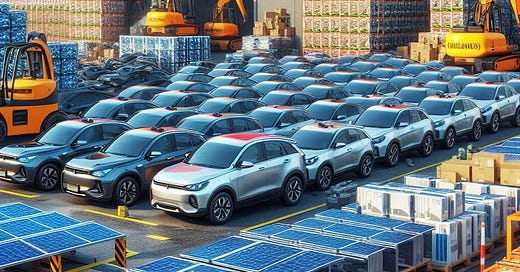PREAMBLE
A China with enough production capacity to change the world will help shape a new, more sustainable and fairer global economic order.
Western economists and media have been hyping up China’s so-called 'economic war' against the world. The purpose of this cognitive warfare [认知战] is to convince people that China is currently exporting cheaply manufactured goods to the world in order to overturn the sluggishness of its domestic economy.
Over many years, China's contribution to the world economy has reached already fifty percent. China is taking on the responsibilities as a major country to attain and achieve win-win outcomes through a high degree of openness. China's own openness is the most effective "international public good" towards rebalancing the world economy.
Currently a professor at the Chinese University of Hong Kong (Shenzhen), Zheng Yongnian (郑永年), offers a sophisticated articulation in responses to Western criticisms.
Key Points
After “peak China”, Chinese “debt trap diplomacy”, China’s “new imperialism” and so on, the concept of “Chinese overcapacity” is merely the newest rhetorical weapon used by the West to undermine China’s rise.
Chinese scholars should be pushing back against such accusations rather than continuing to embrace and be guided by Western economic theory.
The emergence of “Chinese overcapacity” is simply a manifestation of the West reacting to the loss of some of its comparative advantages.
The West’s decision to pursue neoliberal economic policies was a strategic mistake, which led to the de-industrialisation of their economies and provided China with an opportunity to become the manufacturing powerhouse that it is today.
Government intervention in the economy has existed throughout history and continues to be practiced by some of the most ardent proponents of free-market economics (e.g. America’s military-industrial complex).
Washington is set to intervene increasingly in the US economy: protectionist measures will continue to accumulate; state subsidies will rise; and there will be minimal government oversight over key strategic sectors (e.g. AI) to help promote their development.
In the face of this, China must not close itself up. Openness remains the key to its success.
Zheng concludes: “Without productive power, changing the world is impossible. A China with enough production capacity to change the world will help shape a new, more sustainable and fairer global economic order.”
Reposted from
FULL text HERE
The Author





